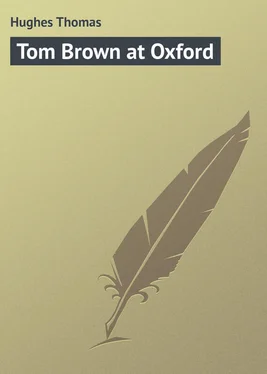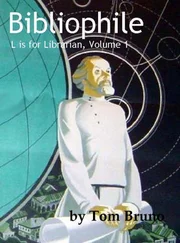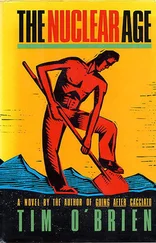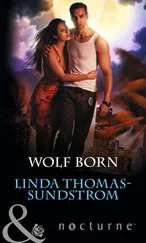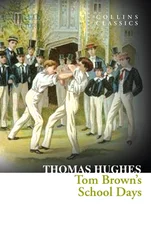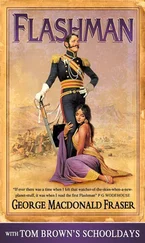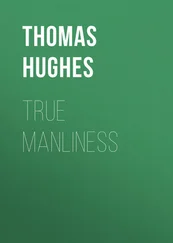Thomas Hughes - Tom Brown at Oxford
Здесь есть возможность читать онлайн «Thomas Hughes - Tom Brown at Oxford» — ознакомительный отрывок электронной книги совершенно бесплатно, а после прочтения отрывка купить полную версию. В некоторых случаях можно слушать аудио, скачать через торрент в формате fb2 и присутствует краткое содержание. Жанр: foreign_prose, foreign_language, на английском языке. Описание произведения, (предисловие) а так же отзывы посетителей доступны на портале библиотеки ЛибКат.
- Название:Tom Brown at Oxford
- Автор:
- Жанр:
- Год:неизвестен
- ISBN:нет данных
- Рейтинг книги:5 / 5. Голосов: 1
-
Избранное:Добавить в избранное
- Отзывы:
-
Ваша оценка:
- 100
- 1
- 2
- 3
- 4
- 5
Tom Brown at Oxford: краткое содержание, описание и аннотация
Предлагаем к чтению аннотацию, описание, краткое содержание или предисловие (зависит от того, что написал сам автор книги «Tom Brown at Oxford»). Если вы не нашли необходимую информацию о книге — напишите в комментариях, мы постараемся отыскать её.
Tom Brown at Oxford — читать онлайн ознакомительный отрывок
Ниже представлен текст книги, разбитый по страницам. Система сохранения места последней прочитанной страницы, позволяет с удобством читать онлайн бесплатно книгу «Tom Brown at Oxford», без необходимости каждый раз заново искать на чём Вы остановились. Поставьте закладку, и сможете в любой момент перейти на страницу, на которой закончили чтение.
Интервал:
Закладка:
CHAPTER III
A BREAKFAST AT DRYSDALE'S
No man in St. Ambrose College gave such breakfasts as Drysdale. Not the great heavy spreads for thirty or forty, which came once or twice a term, when everything was supplied out of the college kitchen, and you had to ask leave of the Dean before you could have it at all. In those ponderous feasts the most hum-drum of the undergraduate kind might rival the most artistic, if he could only pay his battle-bill, or get credit with the cook. But the daily morning meal, when even gentlemen commoners were limited to two hot dishes out of the kitchen, this was Drysdale's forte. Ordinary men left the matter in the hands of scouts, and were content with the ever-recurring buttered toasts and eggs, with a dish of broiled ham, or something of the sort, with a marmalade and bitter ale to finish with; but Drysdale was not an ordinary man, as you felt in a moment when you went to breakfast with him for the first time.
The staircase on which he lived was inhabited, except in the garrets, by men in the fast set, and he and three others, who had an equal aversion to solitary feeding, had established a breakfast-club, in which, thanks to Drysdale's genius, real scientific gastronomy was cultivated. Every morning the boy from the Weirs arrived with freshly caught gudgeon, and now and then an eel or trout, which the scouts on the staircase had learnt to fry delicately in oil. Fresh watercresses came in the same basket, and the college kitchen furnished a spitchedcocked chicken, or grilled turkey's leg. In the season there were plover's eggs; or, at the worst, there was a dainty omelette; and a distant baker, famed for his light rolls and high charges, sent in the bread – the common domestic college loaf being of course out of the question for anyone with the slightest pretension to taste, and fit only for the perquisite of scouts. Then there would be a deep Yorkshire pie, or reservoir of potted game, as a piece, de resistance , and three or four sorts of preserves; and a large cool tankard of cider or ale-cup to finish up with, or soda-water and maraschino for a change. Tea and coffee were there indeed, but merely as a compliment to those respectable beverages, for they were rarely touched by the breakfast eaters of No. 3 staircase. Pleasant young gentlemen they were on No. 3 staircase; I mean the ground and first floor men who formed the breakfast-club, for the garrets were nobodies. Three out of the four were gentlemen-commoners, with allowances of 500L a year at least each; and, as they treated their allowances as pocket-money, and were all in their first year, ready money was plenty and credit good, and they might have had potted hippopotamus for breakfast if they had chosen to order it, which they would most likely have done if they had thought of it.
Two out of the three were the sons of rich men who made their own fortunes, and sent their sons to St. Ambrose's because it was very desirable that the young gentlemen should make good connexions. In fact, the fathers looked upon the University as a good investment, and gloried much in hearing their sons talk familiarly in the vacations of their dear friends Lord Harry This and Sir George That.
Drysdale, the third of the set, was the heir of an old as well of a rich family, and consequently, having his connexion ready made to his hand, cared little enough with whom he associated, provided they were pleasant fellows, and gave him good food and wines. His whole idea at present was to enjoy himself as much as possible; but he had good manly stuff in him at the bottom, and, had he fallen into any but the fast set, would have made a fine fellow, and done credit to himself and his college.
The fourth man at the breakfast-club, the Hon. Piers St. Cloud was in his third year, and was a very well-dressed, well-mannered, well-connected young man. His allowance was small for the set he lived with, but he never wanted for anything. He didn't entertain much, certainly, but when he did, everything was in the best possible style. He was very exclusive, and knew no man in college out of the fast set, and of these he addicted himself chiefly to the society of the rich freshmen, for somehow the men of his own standing seemed a little shy of him. But with the freshmen he was always hand and glove, lived in their rooms, and used their wines, horses, and other movable property as his own. Being a good whist and billiard player, and not a bad jockey, he managed in one way or another to make his young friends pay well for the honour of his acquaintance; as, indeed, why should they not, at least those of them who came to the college to form eligible connexions; for had not his remote lineal ancestor come over in the same ship with William the Conqueror? Were not all his relations about the Court, as lords and ladies in waiting, white sticks or black rods, and in the innermost of all possible circles of the great world; and was there a better coat of arms than he bore in all Burke's Peerage?
Our hero had met Drysdale at a house in the country shortly before the beginning of his first term, and they had rather taken to one another. Drysdale had been amongst his first callers; and, as he came out of chapel one morning shortly after his arrival, Drysdale's scout came up to him with an invitation to breakfast. So he went to his own rooms, ordered his commons to be taken across to No. 3, and followed himself a few minutes afterwards. No one was in the rooms when he arrived, for none of the club had finished their toilettes. Morning chapel was not meant for, or cultivated by gentlemen-commoners; they paid double chapel fees, in consideration of which, probably, they were not expected to attend so often as the rest of the undergraduates; at any rate, they didn't, and no harm came to them in consequence of their absence. As Tom entered, a great splashing in an inner room stopped for a moment, and Drysdale's voice shouted out that he was in his tub, but would be with him in a minute. So Tom gave himself up to contemplation of the rooms in which his fortunate acquaintance dwelt; and very pleasant rooms they were. The large room in which the breakfast-table was laid for five, was lofty and well proportioned, and panelled with old oak, and the furniture was handsome and solid, and in keeping with the room.
There were four deep windows, high up in the wall, with cushioned seats under them, two looking into the large quadrangle, and two into the inner one. Outside these windows, Drysdale had rigged up hanging gardens, which were kept full of flowers by the first nurseryman in Oxford, all the year round; so that even on this February morning, the scent of gardenia and violets pervaded the room, and strove for mastery with the smell of stale tobacco, which hung about the curtains and sofa. There was a large glass in an oak frame over the mantelpiece, which was loaded with choice pipes and cigar cases and quaint receptacles for tobacco; and by the side of the glass hung small carved oak frames, containing lists of meets of the Heyshrop, the Old Berkshire, and Drake's hounds, for the current week. There was a queer assortment of well-framed paintings and engravings on the walls; some of considerable merit, especially some watercolor and sea-pieces and engravings from Landseer's pictures, mingled with which hung Taglioni and Cerito, in short petticoats and impossible attitudes; Phosphurous winning the Derby; the Death of Grimaldi (the famous steeple-chase horse, not poor old Joe); an American Trotting Match, and Jem Belcher and Deaf Burke in attitudes of self-defense. Several tandem and riding whips, mounted in heavy silver, and a double-barrelled gun, and fishing rods, occupied one corner, and a polished copper cask, holding about five gallons of mild ale, stood in another. In short, there was plenty of everything except books – the literature of the world being represented, so far as Tom could make out in his short scrutiny, by a few well-bound but badly used volumes of the classics, with the cribs thereto appertaining, shoved away into a cupboard which stood half open, and contained besides, half-emptied decanters, and large pewters, and dog collars, and packs of cards, and all sorts of miscellaneous articles to serve as an antidote.
Читать дальшеИнтервал:
Закладка:
Похожие книги на «Tom Brown at Oxford»
Представляем Вашему вниманию похожие книги на «Tom Brown at Oxford» списком для выбора. Мы отобрали схожую по названию и смыслу литературу в надежде предоставить читателям больше вариантов отыскать новые, интересные, ещё непрочитанные произведения.
Обсуждение, отзывы о книге «Tom Brown at Oxford» и просто собственные мнения читателей. Оставьте ваши комментарии, напишите, что Вы думаете о произведении, его смысле или главных героях. Укажите что конкретно понравилось, а что нет, и почему Вы так считаете.
